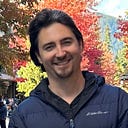You’ll Never Speak the Language of Nature by Chasing Algorithms
Nonconstructive mathematics does not claim there exists mathematics that can do “more” than computation, rather it is an approach to mathematical reasoning and proof that allows for the existence of mathematical objects that don’t require explicit constructions (e.g. an algorithm).
Those are two very different things. Just because one can envision the truth of a proposition by indirect means does not mean it cannot be computed. AI shows us that we can compute things far beyond any algorithmic interpretation.
There is nothing particularly otherworldly about a “universe in which you might build a machine that can traverse an infinite graph in a finite amount of steps” as such approaches are effectively achieved heuristically in nature already. I get it, you’re thinking deterministically, but that’s not how nature computes, and there is no reason anyone should want to (if looking to solve naturally hard problems). Information compression handles the entire search space by pattern recognition; this is what it means to compute in nature.
If we were to map the library of common mathematical primitives onto proven implementation constraints, we would in fact be far less real-world, because now we’ve forced nature into a rules-based box, which is directly counter to how nature solves problems.
You’ll never speak the language of nature by chasing algorithms. Those are simplistic narratives that compute simple systems, not natural phenomena.
The computation that solves categorically hard problems uses mathematics and their constructive implementations as starting points in computation, but these are not what you are left with after things converge via millions of iterations.
Nature uses rules, but she does not compute using rules (in the mathematical sense).
